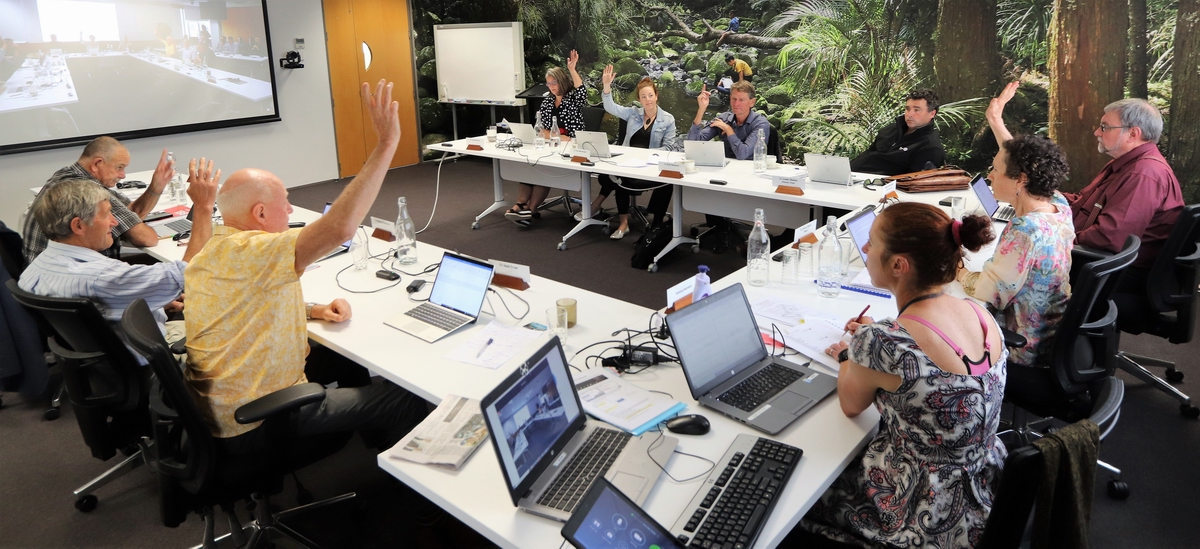Govt decision to remove Māori seat poll option welcomed
3 Feb 2021, 8:46 AM
Northland Regional Council (NRC) Chair Penny Smart has welcomed news central government will remove an ‘outdated, unfair’ law that allows referendums to overturn councils’ plans to establish dedicated Māori seats.
Currently five per cent of electors can petition for a binding referendum on plans by local authorities to establish Māori seats but Local Government Minister Nanaia Mahuta announced on Monday, 01 February, the law will be scrapped in time for the local body elections next year.
The NRC had twice late last year written to government asking for the government to remove an ‘unfair anomaly’ that allowed just 5% of electors (in NRC’s case about 6000 people) to call for a poll and urging it to address the situation promptly.
News the council can now proceed with its plans to introduce a Māori seat/s in the 2022 election without the threat of a costly and time-consuming poll driven by opponents of the move has been ‘very warmly received’ by council collectively.
The central government decision means the only way dedicated Māori seats would not happen in Northland now would be if the council itself reversed its decision, something Chair Smart says is ‘highly unlikely’.
The NRC and its Whangarei and Kaipara District Councils counterparts all plan to introduce the seats at the next local government elections.
Chair Smart says given more than a third of Northland’s population is Māori, the proposed law change will enable the council to strengthen the existing Māori/council partnership.
“As I’ve said previously, a move to dedicated Māori seats will enable council to better reflect Māori values, issues, priorities and aspirations as they relate to council roles and functions and help us better reflect the needs and aspirations of our entire community.”
“This supports council’s commitment to work in partnership with Māori in a way that honours the principles of the Treaty of Waitangi and reflects the people of Northland, working together for a thriving region.”
“For Māori, it enables a way to be part of important decision making at the council table.”
The council reiterated Māori elected to a designated Māori seat or seats will sign the same oath as other councillors.
“At the decision table they will represent and make decisions for the good of all Northlanders, not just tangata whenua. All councillors – non Māori and Māori alike – are elected to make democratic decisions using robust, well-considered information.”
“This means as elected representatives we must all come to the decision table with no pre-determination, willing to listen, contribute to good debate and then support the outcome of the vote,” Chair Smart says.
While councillors did not wish to comment in detail on efforts by some to force a poll on the NRC’s plans, collectively they are pleased a poll would no longer happen and the ‘outdated and unfair’ law that allowed for it would be changed.
(The polls are a simple ‘yes’ or ‘no’ vote with no consultation and in the case of Māori representation, a poll would have been legally binding, which meant the council would effectively not be able to revisit the issue of Māori representation for six years.)
Councillors say Minister Mahuta’s announcement means they can now continue to focus on the myriad of other important decisions we have to make day-in and day-out as part of their roles.
With the Minister’s announcement, the NRC will now need to develop an ‘Initial Representation Proposal’ setting out the proposed new constituencies, names and boundaries by the end of August this year.
This would be followed by a period of formal consultation, including the opportunity for public submissions. There would then be a further objections/appeals period before a final determination would be made by the Local Government Commission by early April in 2022. (That determination would then apply to both the October 2022 and 2025 Northland Regional Council elections.)

Councillors cast their votes in favour of establishing dedicated Maori constituencies late last year.
